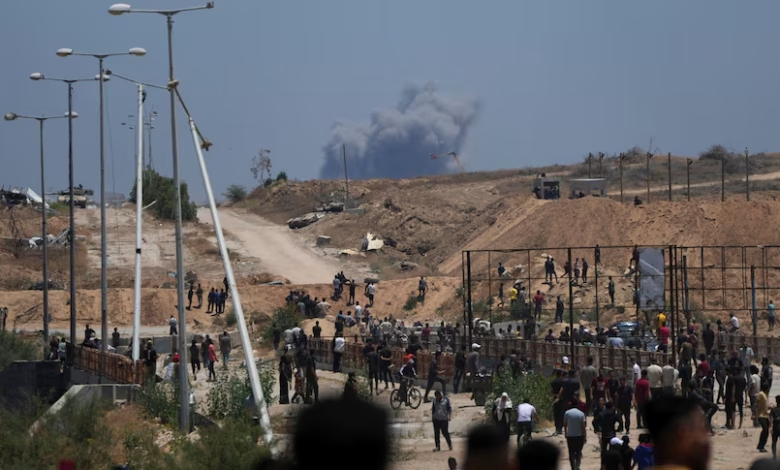Hamas Signals Rejection of Latest U.S.-Brokered Gaza Ceasefire Deal

Hamas has signaled its rejection of a new U.S.-backed ceasefire and hostage-release proposal, casting fresh doubt over efforts to end the ongoing war in Gaza.
A senior official from the group said the offer fails to meet core demands—chief among them, a permanent cessation of hostilities and a full Israeli withdrawal from the territory.
The proposal, crafted by U.S. special envoy Steve Witkoff and reportedly endorsed by Israel, calls for a 60-day ceasefire during which Hamas would release 10 living hostages and the remains of 18 others. In return, Israel would release a number of Palestinian prisoners.
However, Hamas has voiced frustration that the plan does not include binding guarantees for a lasting truce or the reinstatement of full-scale humanitarian access.
White House officials confirmed Thursday that Israel had agreed to the terms of the deal. Press Secretary Karoline Leavitt described the proposal as a “credible path forward,” saying negotiations were ongoing and that Washington was awaiting Hamas’s formal response.
Though Israeli Prime Minister Benjamin Netanyahu has not publicly commented, local media report that he privately informed the families of hostages that Israel had accepted the deal. His office has neither confirmed nor denied the reports.
The diplomatic stalemate comes as Israel ramps up its military offensive in Gaza following the collapse of a previous truce in March. According to Gaza’s Hamas-run health ministry, nearly 4,000 people have died in the last ten weeks of renewed fighting. Since the war began on October 7, 2023, the reported death toll in Gaza has exceeded 54,000, though these figures remain unverified by independent sources.
Israel resumed its offensive on March 18 in a bid to pressure Hamas into releasing the 58 remaining hostages, at least 20 of whom are believed to be alive. Two earlier ceasefire agreements led to the release of 197 hostages, 148 of them alive.
On May 19, Israeli forces expanded ground operations across central and southern Gaza, with Netanyahu declaring that Israel aimed to secure “full territorial control.” The following day, Israel announced a limited easing of its blockade to allow vital food shipments into the besieged enclave, amid growing warnings of imminent famine.
A recent UN-backed food security report estimates that half a million people in Gaza are facing catastrophic hunger, while more than 600,000 have been newly displaced in recent weeks.
Despite its rejection of the U.S. plan, Hamas has confirmed that it remains in contact with mediators and will issue a formal response in due course. The group has consistently stated that it will only agree to a hostage release if tied to a permanent ceasefire and a full Israeli military withdrawal—conditions that Israel has so far refused.
The war was triggered by Hamas’s deadly assault on southern Israel on October 7, during which some 1,200 people were killed and 251 taken hostage. Israel has since vowed to continue its campaign until all hostages are freed, Hamas’s military infrastructure is dismantled, and its leadership is ousted from Gaza.





